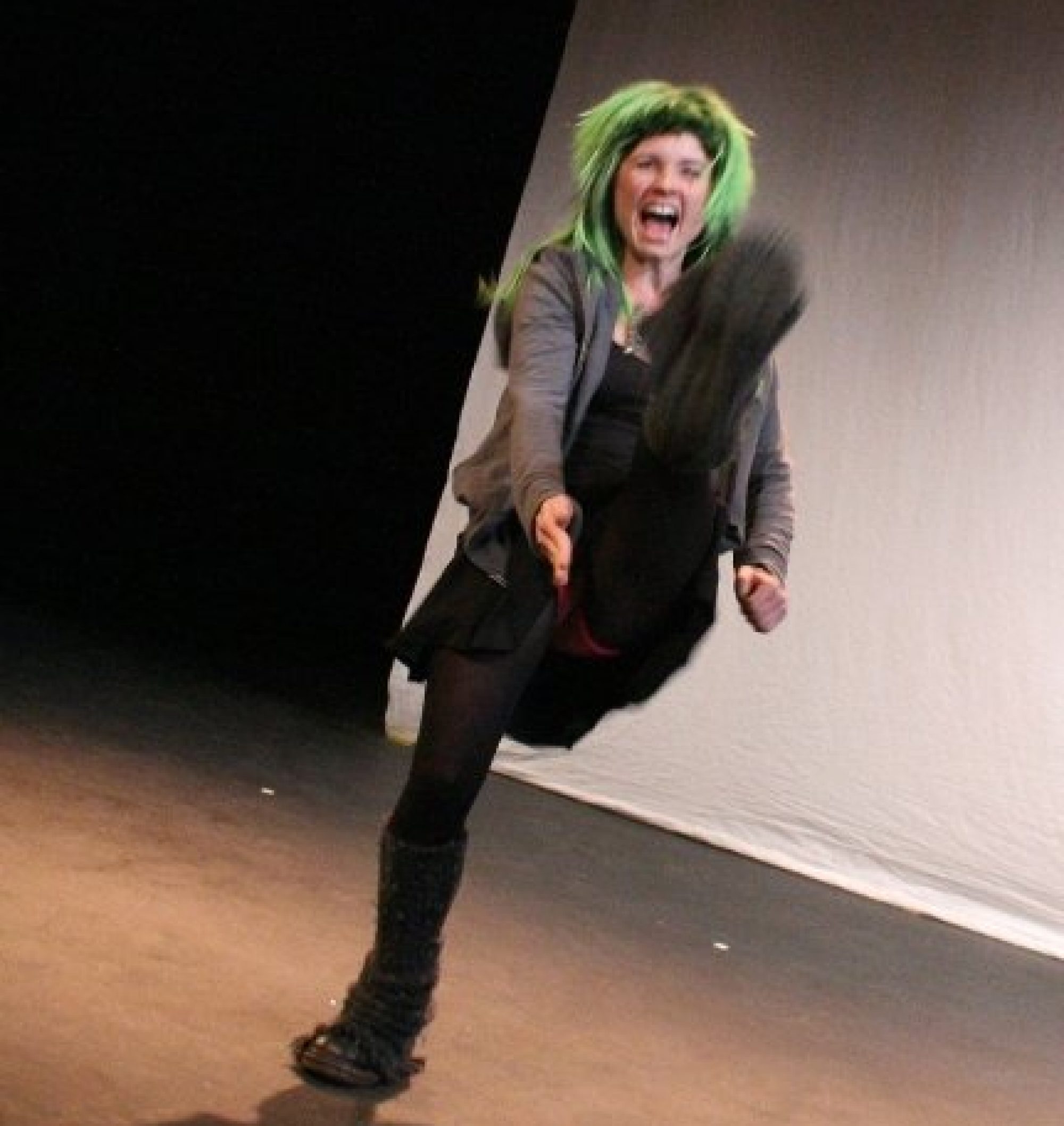BACK STAGE
A New Theory of Vision
March 20, 2009
Reviewed by Ronni Reich
Obscure philosophy, virtual reality, human interaction, and all the codes that go with each get a thorough, thought-provoking exploration in Bob Jude Ferrante’s A New Theory of Vision.
Philosophy professor Lee Krebs (Eric Percival) is often difficult to understand as he lectures his students on sensation and ideas. The same can be said of his brilliant student Erich Danton (a stunning Matt Steiner), who finds a way to bring Krebs’ latest ideas to life by using his computer. But while each talks shop a touch longer than dramatically necessary, it is worth straining to comprehend them to see the chain of events their collaboration sets off.
When Lee realizes Erich may hold the key to a new book that will keep him in his teaching job, his co-workers Ted and Cara Roth (Julian Elfer and Maeve Yore) become more involved in the project, and the project gets more involved in all their lives than any of them could imagine. Erich, who has Asperger’s syndrome, sees Cara for counseling, and Erich’s computer skills end up entwined with Ted’s compulsive Web surfing.
Their interactions play out on a smart video set by production designer George Allison and video designer Jonathan Arthur Ashley that adds to the work without ever becoming intrusive. Director Cat Parker culls vibrant characterizations, and she and the cast keep the work as realistic as possible.
Reaching out to Lee for friendship, Erich uses the virtual world, where Lee’s theories of experience fall apart, to gain insights into Lee’s life. Characters from Lee’s past and his and Erich’s imaginations populate the scene, until Lee no longer knows how to get out of the computer program — or wants to. The trapped-in-the-computer plot line may not be the strongest, but used as skillfully toward character development as Ferrante does, it is unexpectedly effective.


You must be logged in to post a comment.